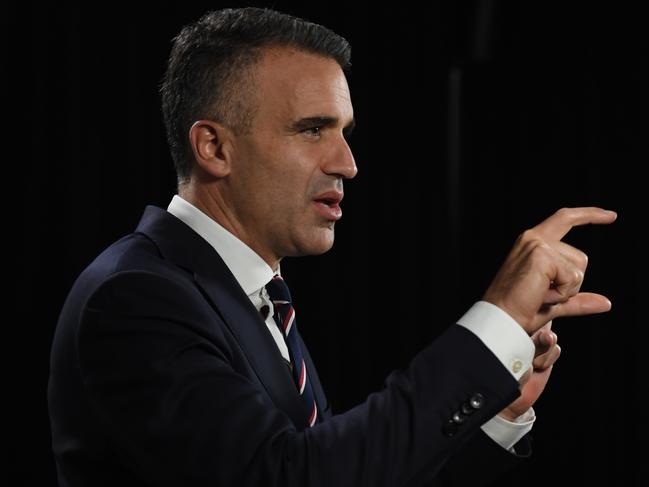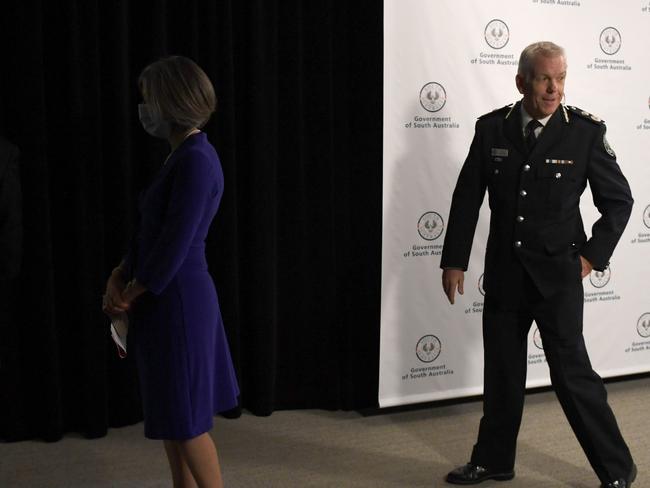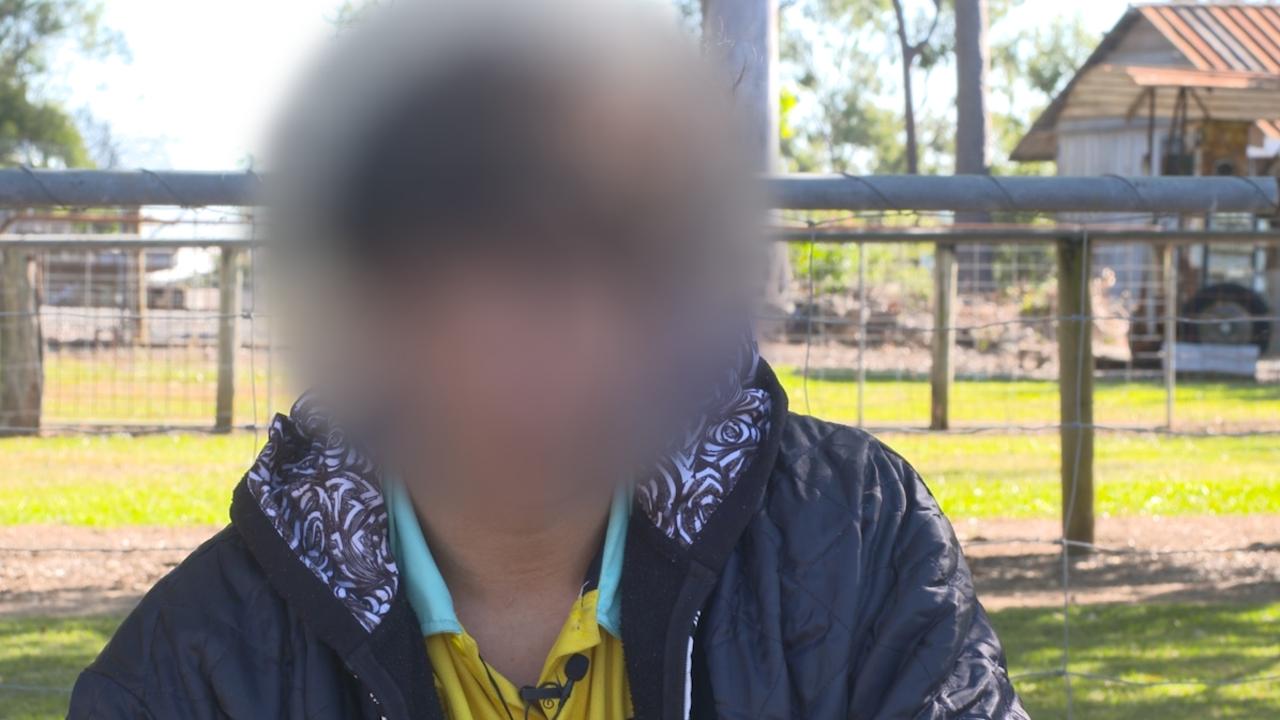Covid-19 emergency laws to be scrapped in new sign pandemic crisis ending
Lockdowns and major state-wide restrictions are on their way to disappearing.
Coronavirus
Don't miss out on the headlines from Coronavirus. Followed categories will be added to My News.
The state’s top cop will no longer decide what restrictions can ease as South Australia’s exit from the pandemic is one step closer with new laws to replace the state of emergency.
In what Premier Peter Malinauskas described as a “major step”, the state government is due to table changes to public health laws in parliament on Wednesday to replace Covid emergency powers.
He said he wanted to end the Emergency Management Declaration by the end of June. He said legislation to allow that while also ensuring some rules remain must pass through parliament before May 30 for that timeline to be hit.
“We are approaching a time where that arrangement needs to conclude,” he said.
He thanked chief public health officer professor Nicola Spurrier and Police Commissioner Grant Stevens for their work during the pandemic.
“To be frank I think these are changes that could have been contemplated some time ago.”
Health Minister Chris Picton said a 28 day extension to the Emergency Management Act had happened 28 times since March 22, 2020.
“What this legislation will allow us to do is keep those baseline public health protections in place . . . such as high risk locations like aged care, disability, hospitals and health care making sure there’s particular requirements around masks and vaccines in those high risk environments.”
He said the legislation would ensure ensure rules can continue for directions - such as orders to isolate - for those who test positive or are close contacts of people with Covid.
He said Mr Steven would continue to play a role in Cabinet’s Emergency Management Council.
WATCH THE PREMIER’S PRESS CONFERENCE:
OR CLICK HERE.
The Public Health Act changes allow key directions to stay after the emergency declaration is scrapped.
Mr Stevens said his current powers which authorise he sign legal directions as state co-ordinator may end before the end of May.
“It could be before the end of May depending on how quickly this Bill gets dealt with,” Mr Stevens said on ABC Radio Adelaide on Wednesday morning.
“If that covers the gap that would be there if I remove the declaration then we’re good to go.
“There is a potential if this Bill goes through and there is an alternative mechanism to make sure people can be directed to do the right thing I’ll have to seriously consider whether there is a need for another extension.
“At this stage I’m being the optimist and thinking there won’t be.”

The new Public Health Act will include laws that enforce Covid isolation, vaccination mandates and mask use in high risk settings such as hospitals, healthcare facilities, nursing homes or jails, as well as “infection controls”.
Any new restrictions such as lockdowns, density bans or mask mandates will need a new emergency declaration especially if new variants spark fresh safety concerns.
Cabinet’s Emergency Management Council will now decide which restrictions can ease instead of Police Commissioner Grant Stevens.
Mr Malinauskas said: “This is a major step towards ending the emergency phase of the pandemic and transitioning to living with Covid.
“Of course, we retain the need to be vigilant, and ready to act in the event of a substantial change of circumstances.”
Mr Stevens’ powers will cease once the declaration is scrapped but he will remain state co-ordinator if any new declaration is invoked.
He will remain a member of the EMC and will provide critical opinion on pandemic measures but declined to comment on the new laws.
He has, however, said there were sound reasons to keep the laws but they had been reviewed.
Mr Stevens has previously stated his desire to return to conventional police work, despite taking his Covid role seriously. He has also said that the governor would end the declaration once the pandemic danger has passed.

Crown law advice found chief public health officer Professor Nicola Spurrier had to sign off each isolation case, meaning a need for “standard” quarantine.
Prof Spurrier said authorities “recently identified what measures are still required to be in place to manage Covid-19 safely in our community”.
She said moving rules was important to ensure the right tools to address uncertainty.
The Liberal opposition is examining the laws after a briefing on Monday night.
An opposition spokesman said it was considering the new bill.




